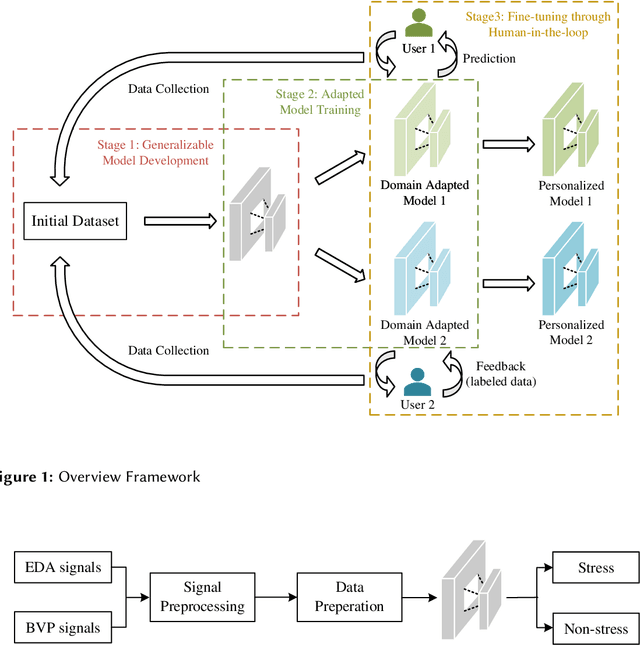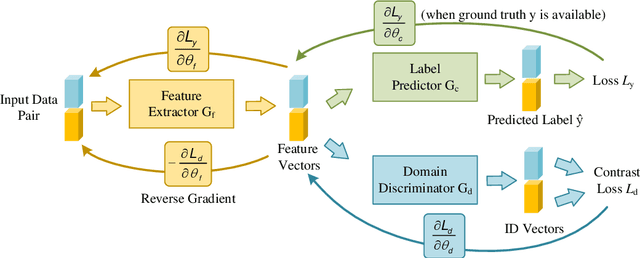An Adaptive System for Wearable Devices to Detect Stress Using Physiological Signals
Paper and Code
Jul 21, 2024


Timely stress detection is crucial for protecting vulnerable groups from long-term detrimental effects by enabling early intervention. Wearable devices, by collecting real-time physiological signals, offer a solution for accurate stress detection accommodating individual differences. This position paper introduces an adaptive framework for personalized stress detection using PPG and EDA signals. Unlike traditional methods that rely on a generalized model, which may suffer performance drops when applied to new users due to domain shifts, this framework aims to provide each user with a personalized model for higher stress detection accuracy. The framework involves three stages: developing a generalized model offline with an initial dataset, adapting the model to the user's unlabeled data, and fine-tuning it with a small set of labeled data obtained through user interaction. This approach not only offers a foundation for mobile applications that provide personalized stress detection and intervention but also has the potential to address a wider range of mental health issues beyond stress detection using physiological signals.
 Add to Chrome
Add to Chrome Add to Firefox
Add to Firefox Add to Edge
Add to Edge